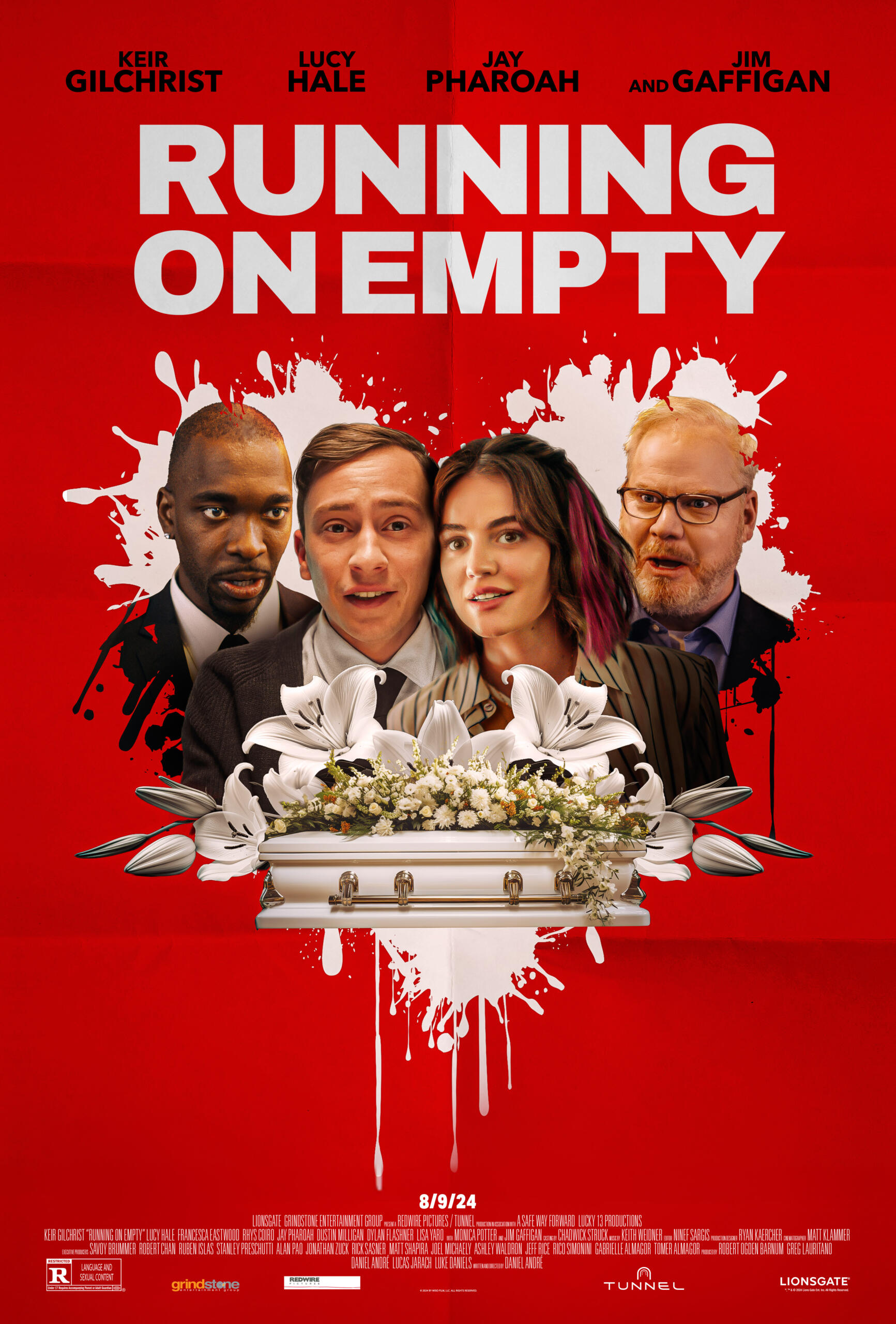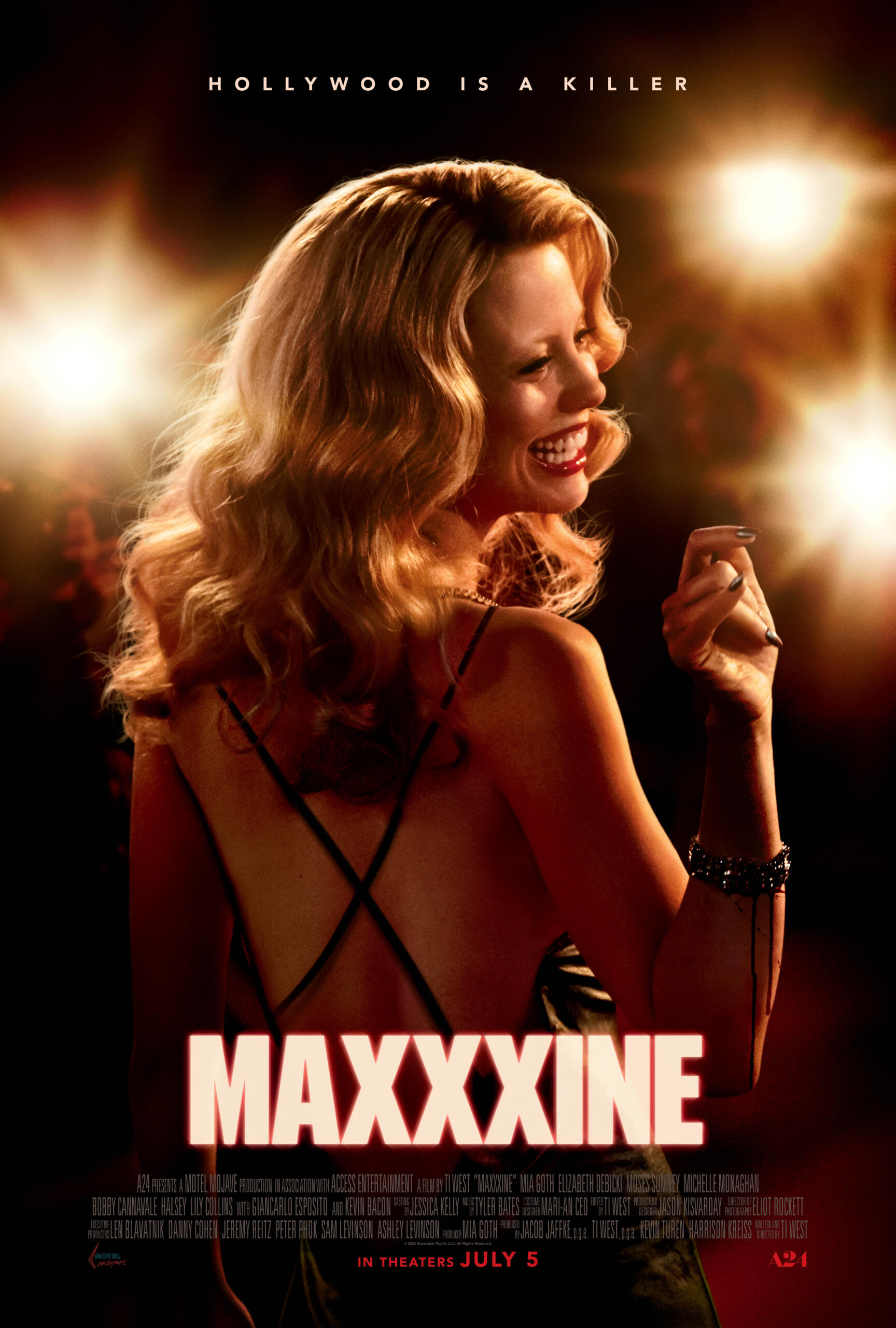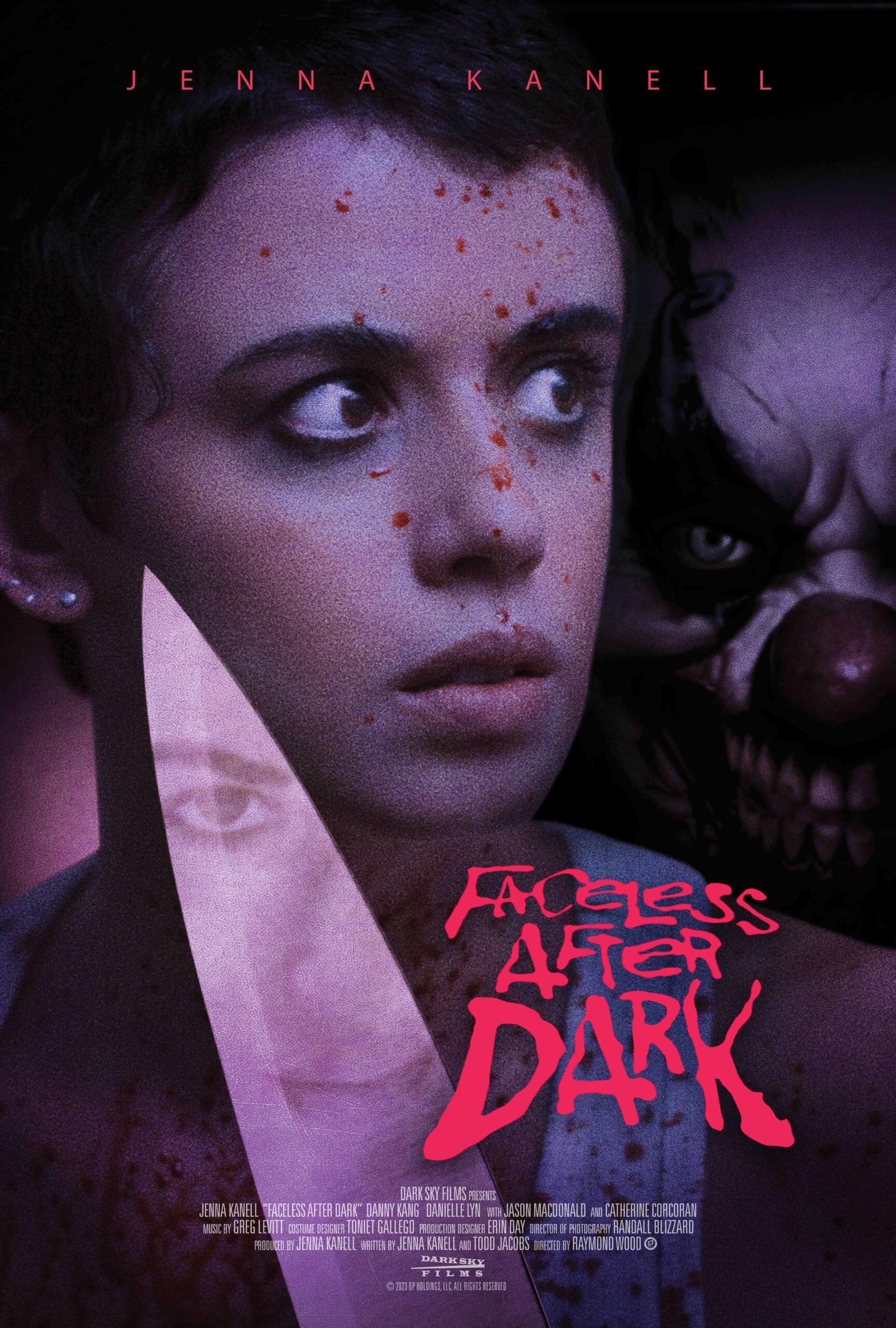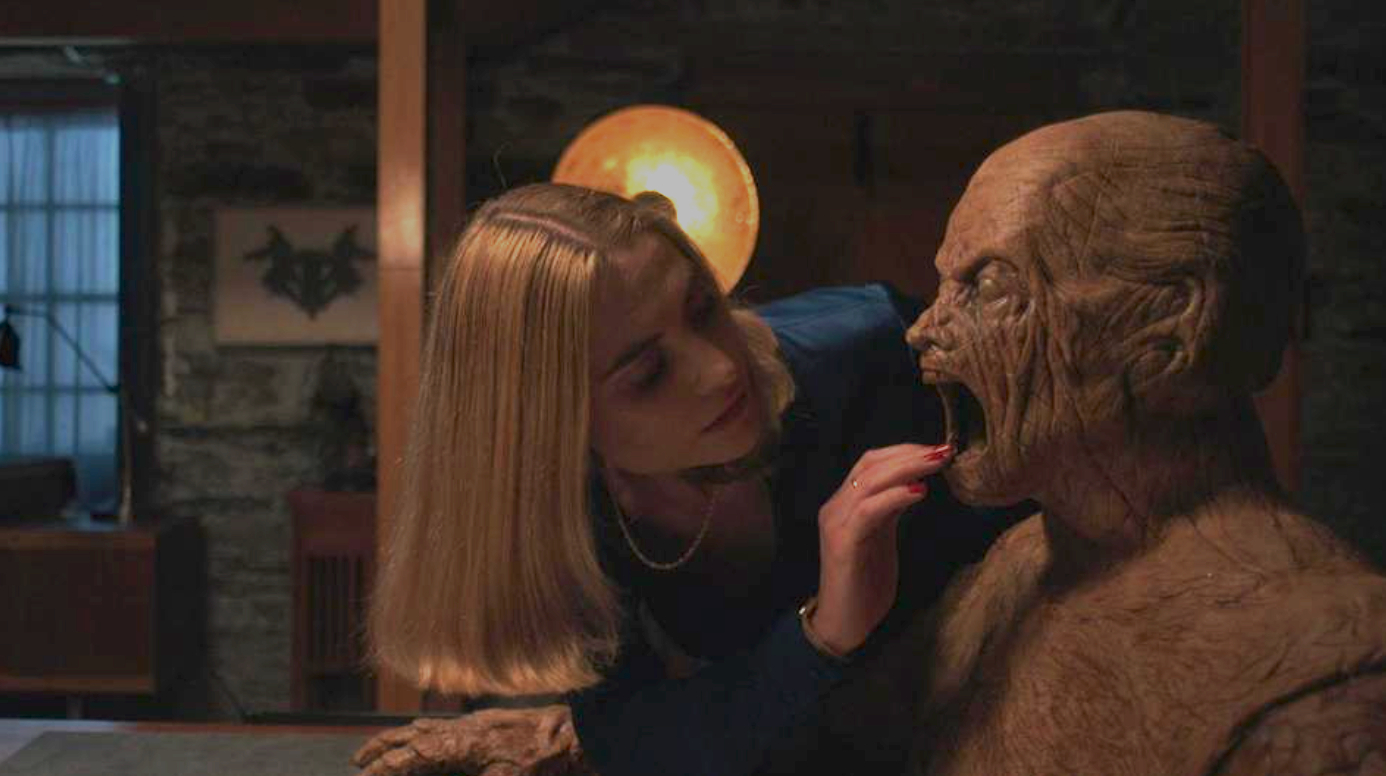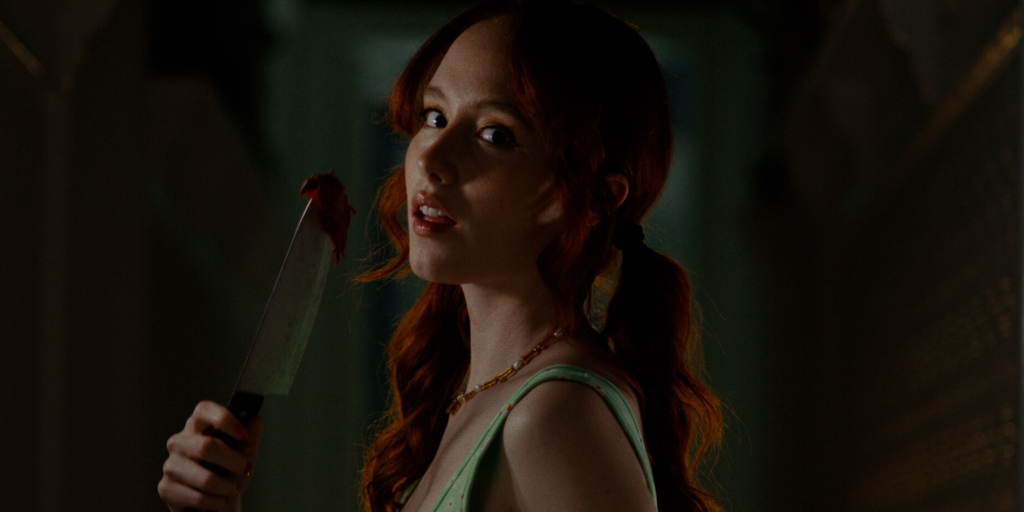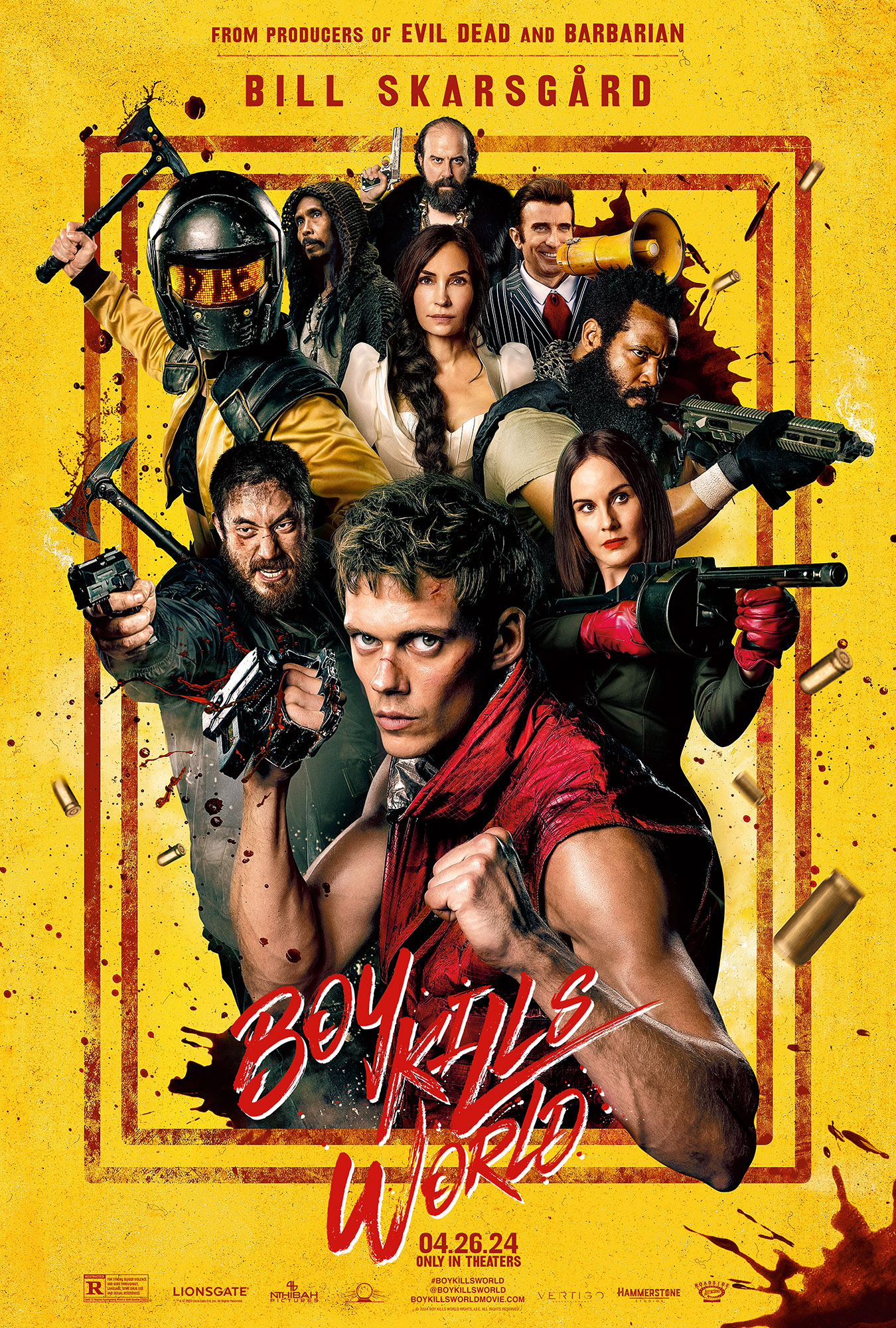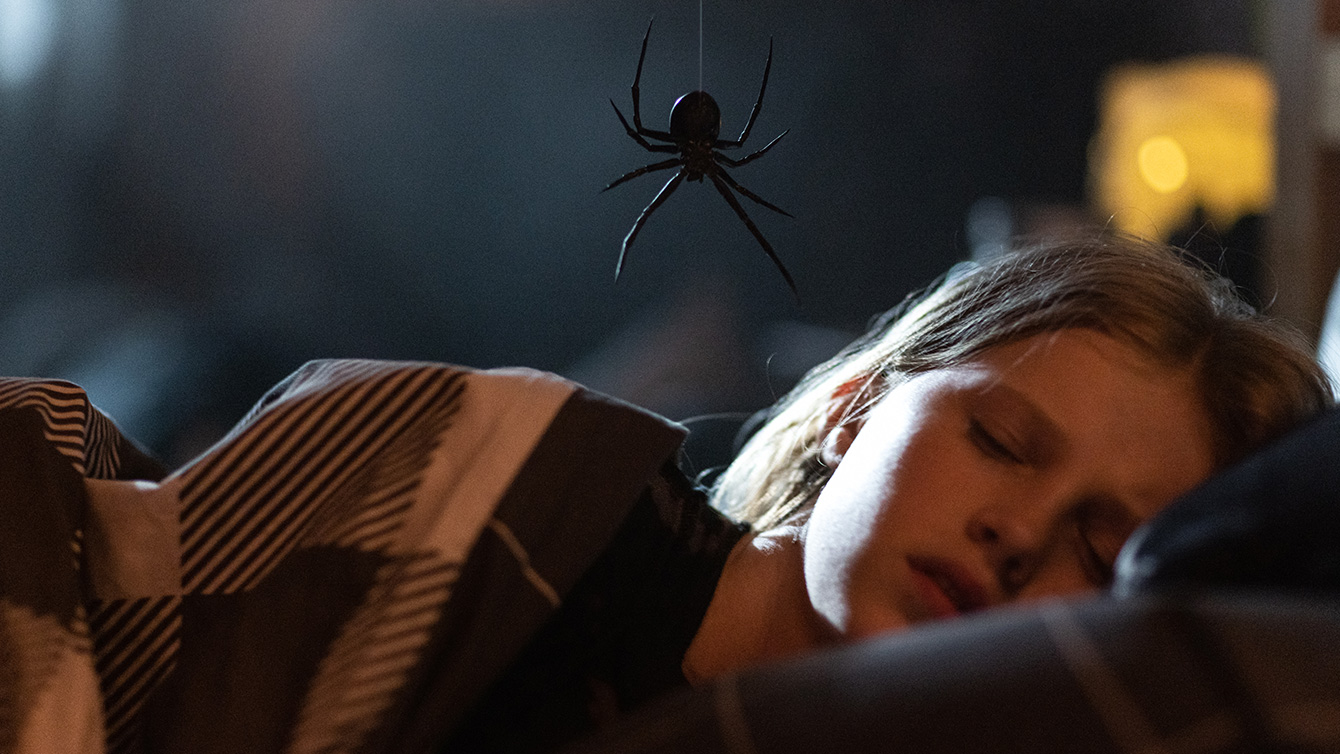Every year I try to watch as many films as I can at Panic Fest. It’s impossible to get to all of them in the brief week-and-a-half, but I get better at it every year. I managed to watch more films this year than last year, catching around 80% of the film’s offered in-person and virtually at the 2024 iteration. I haven’t done this in the past, but decided to do it this year because I don’t get the opportunity to write something on everything I see. I really don’t have the time or willpower to churn out 37 reviews. I figured the best way to encapsulate the films at Panic Fest is to write a blurb about each film and rank them compared to one another. So, without further ado, below is a ranking of this year’s films, so you can keep an eye out for them as they travel at other festivals around the country or hit theaters.
#37: Haunted Ulster: Live
-Not for me. I’m not sure how you define a film like “Haunted Ulster: Live.” It reminds me a lot of “WNUF: Halloween Special.” I appreciate the nostalgic nature of local live TV events, but “Haunted Ulster: Live” feels more like an inside joke than a found TV footage film.
#36: Young Blondes, Stalked and Murdered
-Sometimes the title is the film. It worked in the 80s with films like “Sorority Babes in the Slimeball Bowl-O-Rama,” but for “Young Blondes, Stalked and Murdered,” not so much. It’s a promising film, but by the end, you wonder if it would have been better served as a short.
#35: NOCLIP
-You’ve heard of a microbudget, right? Well, “NOCLIP” is a nanobudget. While I didn’t like it, I commend the creators for their couch cushion change budget approach to a film about two stoners wandering around a mall parking lot in search of the creepypasta “Backrooms.”
#34: The Buildout
-I heard a lot of buzz about this during Panic Fest, but unfortunately all that buzz did not resonate with me. “The Buildout” is about two friends in the desert who have to come face-to-face with their emotional and spiritual issues, but by the time it happens I quit caring.
#33: The Hyperborean
-”The Hyperborean” is a comedy. I think. I didn’t laugh, but I found some of it amusing. It’s almost like “The Royal Tenenbaums” with mummies, aliens (once again, I think) and general family chaos. The only thing it’s missing was likability.
#32: Carnage Radio
-”Carnage Radio” reminded me a lot of “Below the Fold.” Both seem to take place in a small town community, both have an unsolved mystery at the beginning, and both are competently shot and acted. There’s just no meat on the bones.
#31: Killington
-Sometimes you watch a film that makes you think about your own years of making a movie or someone else’s. Maybe it was with friends on a phone or maybe for a college class. “Killington” feels like one of those movies, which means every positive is outweighed by the negative.
#30: Hippo
-I’m not going to pretend to know what “Hippo” is about. Multiple people have asked me what it’s about and I tell every one of those individuals that the title character is an obnoxious incel version of Napoleon Dynamite. That to me either makes or breaks your viewing experience.
#29: All Alone Together
-What happens when a filmmaker’s visions turn into real nightmares? “All Alone Together” attempts to answer that question in a very entertaining 15-20 minutes, but the longer it goes, the more you question the necessity of it being a feature length film.
#28: The Activated Man
-What does a creepy pale nightmare man with a black hat have to do with the spiritual war between good and evil? I’m not sure, but “The Activated Man” will either hit you right in your feelings or will leave you wondering what exactly you’re missing out on.
#27: Worlds
-Worlds uses other people’s Ring doorbell footage, along with cops and others, to create a mystery about its title character, a man in a white shirt that says “WORLDS”. The film ends up creating a mystery longer than its runtime, leaving viewers unsatisfied.
#26: All You Need is Death
-What happens when two people recording old folk music record a song they shouldn’t? Good question, because “All You Need is Death” may have been lost in translation. While some elements of the film are universal, others may need to be explained to my American mind.
#25: Kryptic
-A woman with no knowledge of who she is goes on a journey involving cryptids, cults and unsavory characters. The journey in “Kryptic” is fascinating at first, but it becomes clear as the film goes that the filmmaker should have worked a bit longer on a point.
#24: Psychosis
-Technically speaking, I enjoyed this film a lot. It felt very much like an early-90s student film delving into insanity. However, the script just doesn’t match the overall tone. Instead of exploring its themes, it just kind of presents them and hopes that’s enough.
#23: Hostile Dimensions
-What if existence is an endless stream of realities where each individual choice and thought spurs an entire next reality? That’s what “Hostile Dimensions” posits, but only uses that theory to spin a more personal story. It runs out of ideas, despite the notion of infinite possibilities.
#22: Spookt
-In small town Pennsylvania, an abandoned haunted house serves as the source for all rumors and evil. So it’s up to two Youtubers, a skeptic and a believer in the paranormal, to find out if something is indeed in the house. You’ll eventually find out the obvious answer, but you have an incredibly confusing plot to get through first.
#21: The Ceremony is About to Begin
-I find myself being indifferent towards “The Ceremony is About to Begin.” While starting off like a PBS documentary about a drug-fueled cult, and very few aren’t it seems like, the film evolves into something else as the director goes searching for the truth. The truth is apparent, but thankfully for the audience, the director is ignorant.
#20: Purgatory Jack
-”Purgatory Jack” is about what happens to our souls after suicide. It sounds like a dark premise, but it’s actually quite fun. Named like a western, shot like a bright noir mystery and acted like the insane idea it is, “Purgatory Jack” is entertaining even if it’s not great. It’s a comfort food for some and sometimes that’s really all you need.
#19: Blind Cop 2
-I actually thought “Blind Cop 2” would be the best comedy at Panic Fest, but it’s not. A film like “Wolf Cop” (a Panic Fest alum) understands what it is and never does more. “Blind Cop 2” understands it’s a parody of 80s action films, but it attempts to parody too much. While funny, it makes you wonder if the filmmakers were confident in the core material to begin with.
#18: Don’t Die
-It’s hard to write about “Don’t Die” because I keep thinking about how it’s “Get Out” without a Hollywood budget. The stories aren’t beat-for-beat the same, but the themes are very similar. That being said, it’s not a bad thing. “Don’t Die” still has its own story on race and classism, and was a passable watch at this year’s Panic Fest.
#17: Couples to Hell
-”Couples to Hell” is an anthology movie where the four stories are written and directed by the same director. The idea in this anthology is that it’s all about couples, even though it really isn’t. Anthology films are difficult to pull off for a variety of reasons, but this one at least has four interesting tales, even if there’s no connective tissue, wraparound story or sense of purpose.
#16: Jeffrey’s Hell
-Aaron Irons, who wrote, directed, acted, and probably did everything else, highlights the evil that can be found in the Appalachian Mountains through “Jeffrey’s Hell.” It’s a found footage film that doesn’t follow the rules of found footage. We’re not upset by this rule breaking because something paranormal is telling us, there are no rules.
#15: Never Hike Alone 2
-The “Never Hike Alone” fan franchise is built off the “Friday the 13th” studio franchise, probably one of the only successful cases of this happening. Successful meaning, on-par if not better than the source material. The latest entry not only has Jason being the stocky mass killing machine he is, but builds upon Jason’s mythology and its own fan mythology in the process.
#14: What You Wish For
-What’s Nick Stahl been up to? Not sure, but his latest film, “What You Wish For,” shows he’s still a talent for whomever rolls the dice on him. “What You Wish For” is thrilling and surprising enough to recommend, however, there are moments where it feels like someone watched “The Menu,” and wanted to make their own small budget version.
#13: Heiresses
-Oddly enough, this was my final watch for Panic Fest 2024 and I almost turned it off because I felt like it was going nowhere. The dialogue-heavy film takes a dramatic exit to shocking violence and ends up becoming an interesting metaphor on grief and our inability to deal with it. I’ll be honest though, if the third act never arrived, this wouldn’t be nearly as high on the list.
#12: Sheryl
-We all got stories about our own quest to find love, only to fail. Finding love is hard enough, but imagine finding the right one while finding out you have a new passion, murder. “Sheryl” is never what you expect. Even though I knew going in that the title character would be handling a break-up with a serial killer that introduced her to murder, I didn’t expect all that came after.
#11: Mother Father Brother Sister Frank
-It seems like every year, there’s a dark comedy at Panic Fest. What kind of genre festival would be complete without one? “Mother Father Brother Sister Frank” is about family and the parts of that family that you wish you weren’t blood related to. This tight winter comedy focuses on how a family deals with Uncle Frank, who isn’t bringing tidings and good cheer. The family isn’t dysfunctional, they just need some bonding time over what to do with Uncle Frank.
#10: New Life
-For those who experienced COVID-19, the pandemic will never not be a thought during film’s like “New Life.” On paper, it’s a movie that’s about two women. Both are battling with the idea of mortality, but only one is looking to put a stop to the potential apocalypse. “New Life” shows us that dramas can have horror, tangible and fictional, sprinkled throughout. Our two leads elevate “New Life” to levels that wouldn’t be possible on the script alone.
#9: Sting
-Two spider movies? At least this one didn’t scare the hell out of me. “Sting” is the kind of spider film that people with intense arachnophobia might be able to handle, much like “Eight Legged Freaks.” The scares aren’t as serious as the peril our characters find themselves in, but “Sting” is a 21st century B-movie creature feature. It is what it is and you’re either going to have a great time, nitpick it to death or avoid it at all costs.
#8: Off-Ramp
A road-trip movie with its tongue planted firmly in its cheek, “Off-Ramp” was one of the films I was looking forward to immediately based on its premise and didn’t disappoint. Two stoner juggalos find trouble and some unexpected new family members on a journey to the “Gathering of the Juggalos.” When the film isn’t having fun or throwing us into the middle of chaos, it’s showing how the juggalo lifestyle isn’t as maligned as you might think.
#7: Ghost Game
-Combine social media challenges, a potentially haunted house, and a cast of characters more ludicrous (in a good way) than the next and you’ve got “Ghost Game.” The film handles multiple themes and threads seamlessly during its brief runtime. Panic Fest has become the premiere festival for various Kansas City voices over the years. With a breathtaking pace, fun characters and a wicked story, “Ghost Game” might just be the biggest premiere of them all.
#6: Sleep
-What would you do if your partner was a potential threat to your newborn? Intentionally or not, “Sleep” not only examines that question, but flips all your preconceived notions during the first hour on its head during a creepy second half. “Sleep” is the best foreign language film to hit Panic Fest 2024. “Sleep” is the kind of film that would have newlyweds and other couples reconsidering the prospect of bringing a new life into the world.
#5: Livescreamers
-Video games that kill you while you play aren’t the most successful of horror genres. “Livescreamers” might be the first successful film in this niche genre. While still a low-budget and small scale film, “Livescreamers” utilizes a unique camera set-up and the Unreal Engine to craft a timely film about how society hasn’t fully learned its lesson since #MeToo. It’s also an insider look and discussion about how damaging internet culture has become, even when it’s all fun and games.
#4: Azrael
-If “Azrael” never sees the light of day, I’ll consider myself fortunate for watching one of the more unique genre films of the past decade. Without uttering a single word (I lied, maybe several in an obscure language), “Azrael” winds its way through a post-Apocalyptic wasteland inspired by “Revelations” and “Left Behind.” Samara Weaving nails her performance and once again has a knack for finding diamonds in the rough scripts to exercise her acting skills. This is a film I’m hoping to watch again, if the studio doesn’t leave it on the shelf.
#3: Oddity
-Something supernatural is afoot in “Oddity,” a tense thriller about a murdered wife and her sister who is attempting to find her real killer. “Oddity” utilizes shadows, a digital camera, a wooden mannequin, and other innocuous inanimate objects to elicit terror. As the mystery unravels, the supernatural forces at work begin to reveal themselves in menacing fashion. While the premise didn’t seem all that promising, it only took a few minutes into “Oddity” for it to unsettle me and keep me on the edge of my seat for the rest of its runtime.
#2: Cannibal Mukbang
-Little did I know the first great romance film of 2024 would be “Cannibal Mukbang.” I was just expecting some fun and gore, but I got way more than that. This genre roller coaster is at times, cute and rom-comish, while at other times is brutally horny and dementedly gory. From the script to the acting to the practical effects, “Cannibal Mukbang” is unforgettable. The director, Aimee Kuge, who worked on several episodes of “The Last Drive-In” with Joe Bob Briggs, has made one of the more mainstream exploitation films I’ve ever seen.
#1: Infested
-It was very difficult to pick a favorite film at this year’s Panic Fest and I feel like I could make a case for the top four on this list, but after much consideration, it has to go to “Infested.” This isn’t only the best film at Panic Fest 2024, but may be on its way to one of the best of 2024. This is a movie that will crawl under your skin at a frightening pace. At one point during the film I felt like something was on me and freaked out. Even well after the film, I was avoiding dark corners and anywhere spiders are lurking. This film is a must-see for horror fans.




